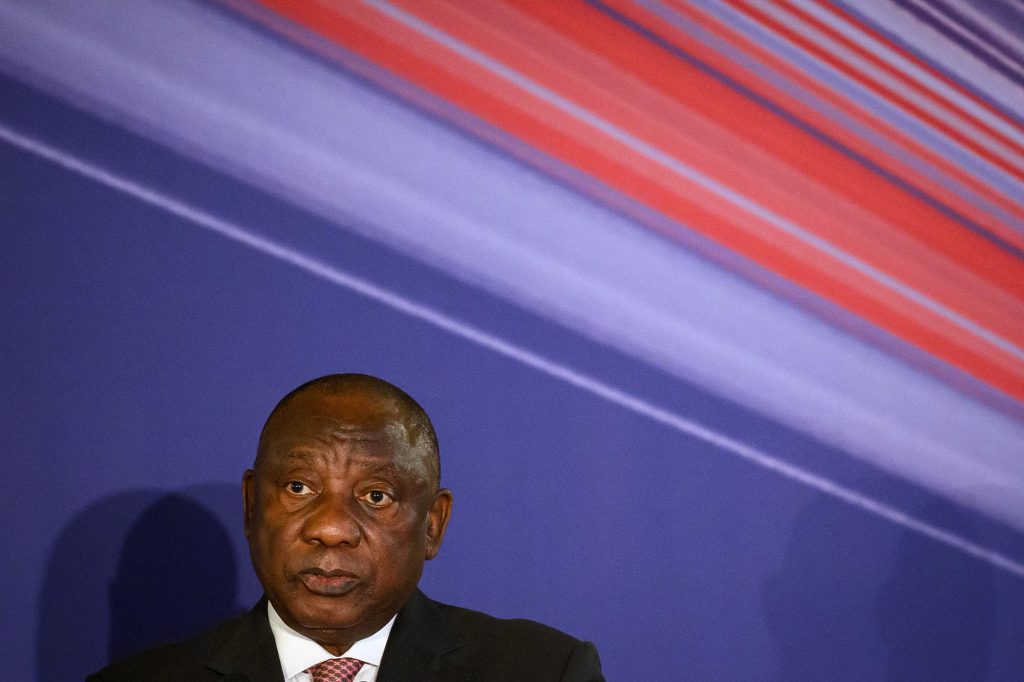President Cyril Ramaphosa has been called on to commit to increased and informed spending by government as a key economic driver in the State of the Nation Address (Sona) on Thursday.
The call was made by Consulting Engineers South Africa (Cesa) president Olu Soluade, who stressed that government needs to overcome the current supply chain and procurement issues and the skills challenge facing the country.
Read: Why Ramaphosa should study Indonesia’s success model
“Additionally, the pace at which this happens needs to be accelerated,” he said.
Soluade referred to Ramaphosa’s statement at the recent ANC Conference that the most important priorities were to tackle the energy crisis to end load shedding, improving the delivery of services and combating crime and corruption.
He said another area of focus for Ramaphosa was local government, especially poor service delivery, and one of the solutions is for the ANC to continue with its aim of professionalising the public service.
Soluade said Cesa wholeheartedly supports government’s focus on professionalising the state, as well as the private sector, to raise competency levels to be able to achieve the progress that is required.
“Our [Cesa’s] hope is that with government’s focus on professionalising the state that we will start to see the right people with the requisite skills, experience and competencies being placed in key positions that ensure that money is spent in a cost effective manner for both the social and economic benefit of the people of our country,” he said.
Soluade referred to the importance of the new Public Procurement Bill and that successive Parliamentary processes support the absolute need to differentiate the procurement processes for infrastructure from that of general goods and services.
He said that currently the same process applies to government for the procurement of “ballpoint pens” and infrastructure.
Read:
Hundreds march to demand Ramaphosa address Basic Income Grant at Sona
No change to BEE or localisation procurement objectives, says Godongwana
SA readying new anti-graft laws, Godongwana says
Soluade said the bill promises to ensure a fundamental shift in principle and in law that will ensure that value for money is equated to the quality of services procured in the infrastructure delivery process and not from “least cost”.
“We need to ensure that the value for money perspective does not get lost in the pursuit of least cost. The responsibility for effective and efficient delivery of infrastructure after all is an operations function and not a procurement function,” he said.
Cesa CEO Chris Campbell said it is highly unlikely the new Public Procurement Bill “will come to fruition this year”.
He said the government should do away with bidding for services by consulting engineers and revert back to the panel system for consulting engineering services.
Soluade commented that funders and developers will have higher levels of confidence that their money is being spent well if the country achieves its goal of rooting out corruption, developing money for value infrastructure that is sustainably designed and built to stand the test of time, and aimed at protecting the lives and livelihoods of the users of this infrastructure.
State construction company
He said Cesa is aware of the popular rhetoric about the formation of a state construction company.
“Understandably, such utterances will become commonplace with an election looming in 2024. However, if there are capacity challenges in the public sector, it’s hard to see how this will be implemented with any speed or certainty,” said Soluade.
The establishment of a state-owned construction company to eradicate the country’s infrastructure backlog and abolish tenders was proposed during a debate in the National Council of Provinces (NCOP) in December.
Read:
Renewed calls for the establishment of state-owned construction companies
Construction is among public sector ‘hotspots’ for corruption
Does SA really need a state-owned shipping company?
Economic Freedom Fighters (EFF) chief whip Mmabatho Mokause said only a capable state can deliver sustainable infrastructure, even to the most remote areas of this country, without considering profit as the primary driver of development.
SA Forum of Civil Engineering Contractors (Safcec) CEO Webster Mfebe was critical of the proposal at the time. He warned that there are doubts about state-owned construction companies being able to be truly competitive because their losses could simply be absorbed by the fiscus, as is the case with most of the state-owned enterprises in the country.

